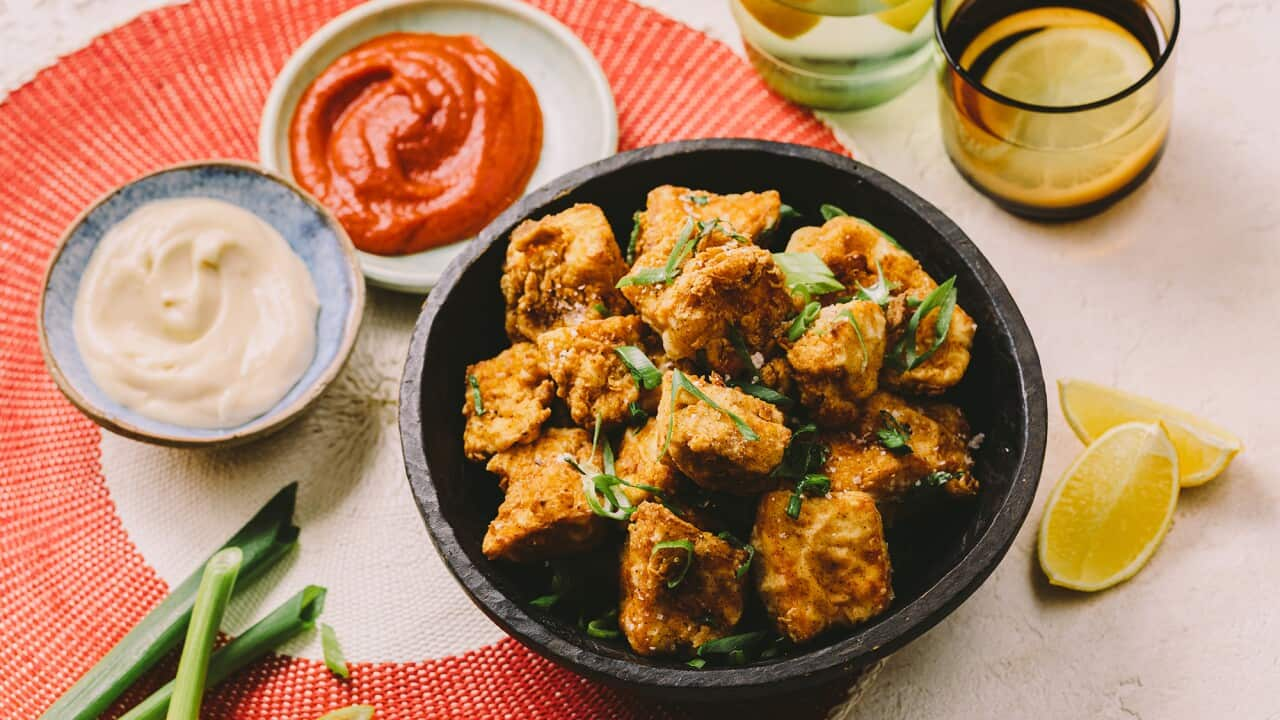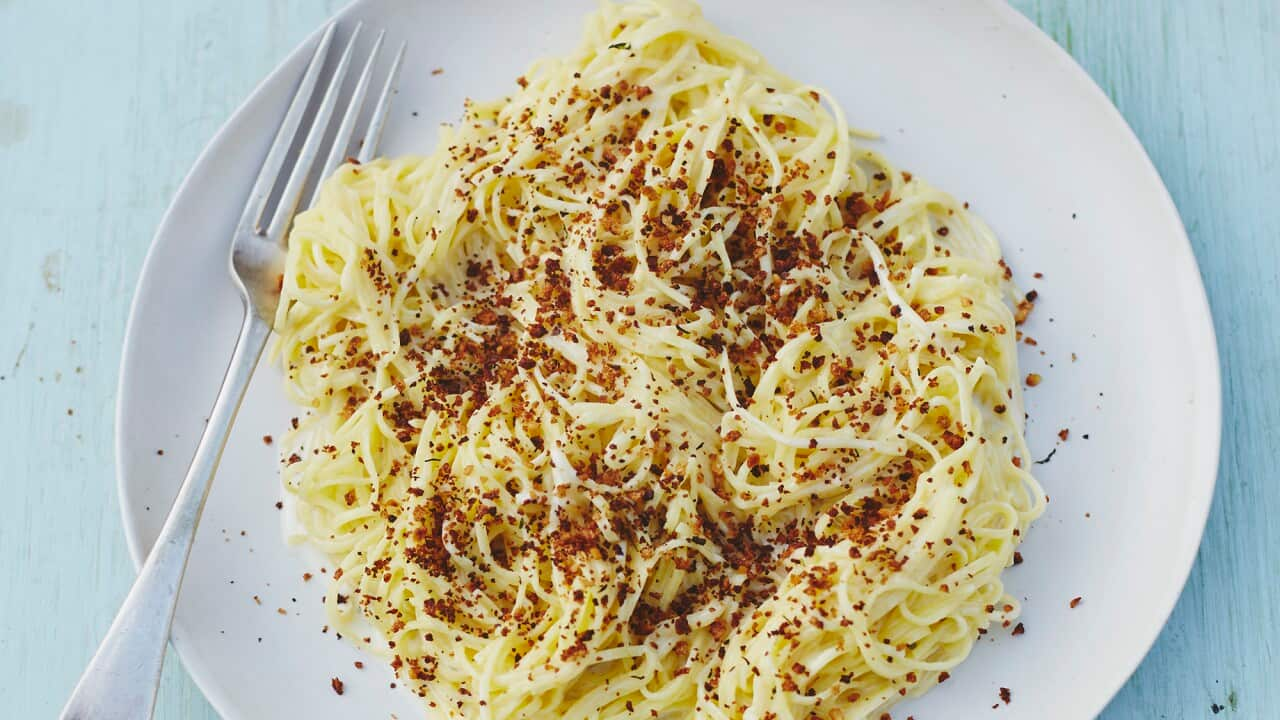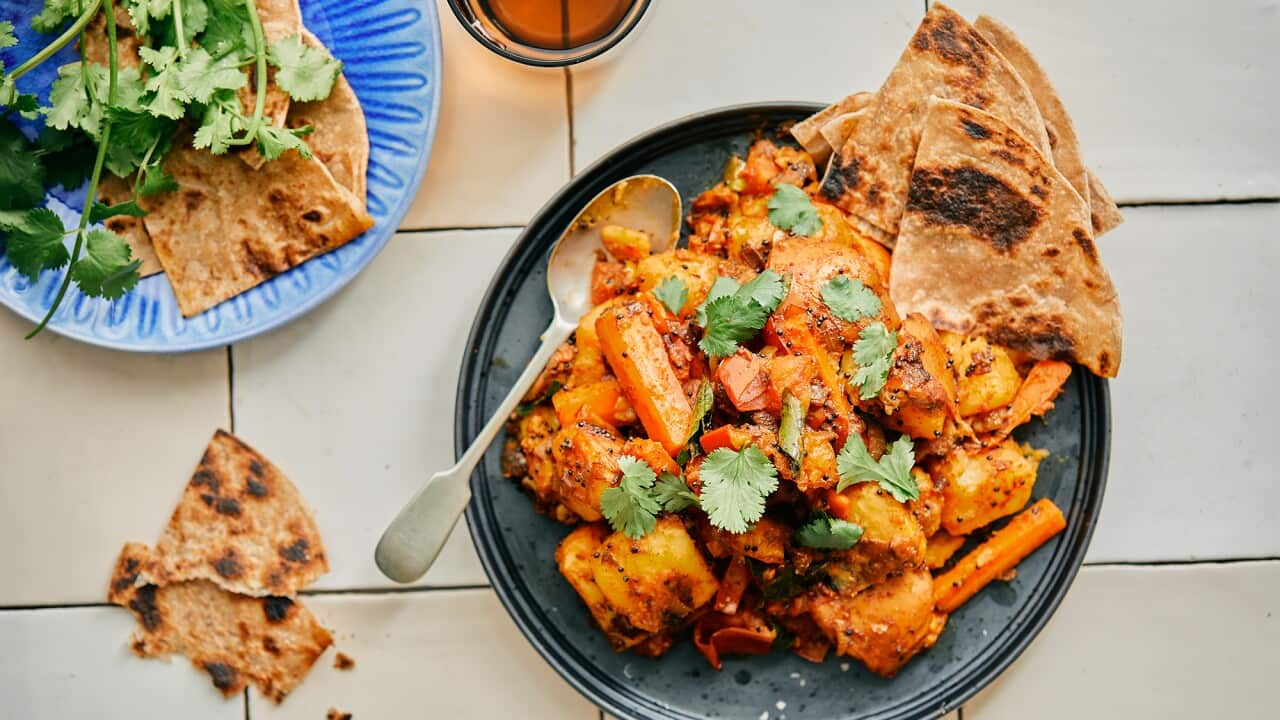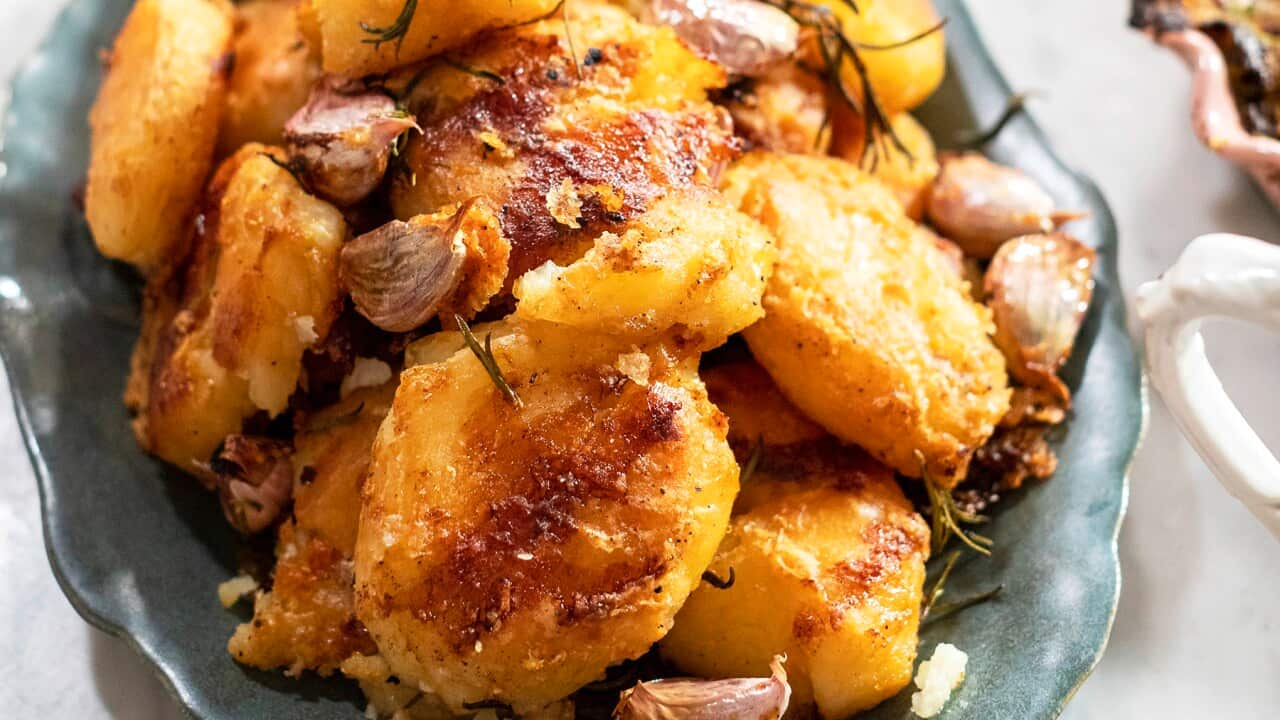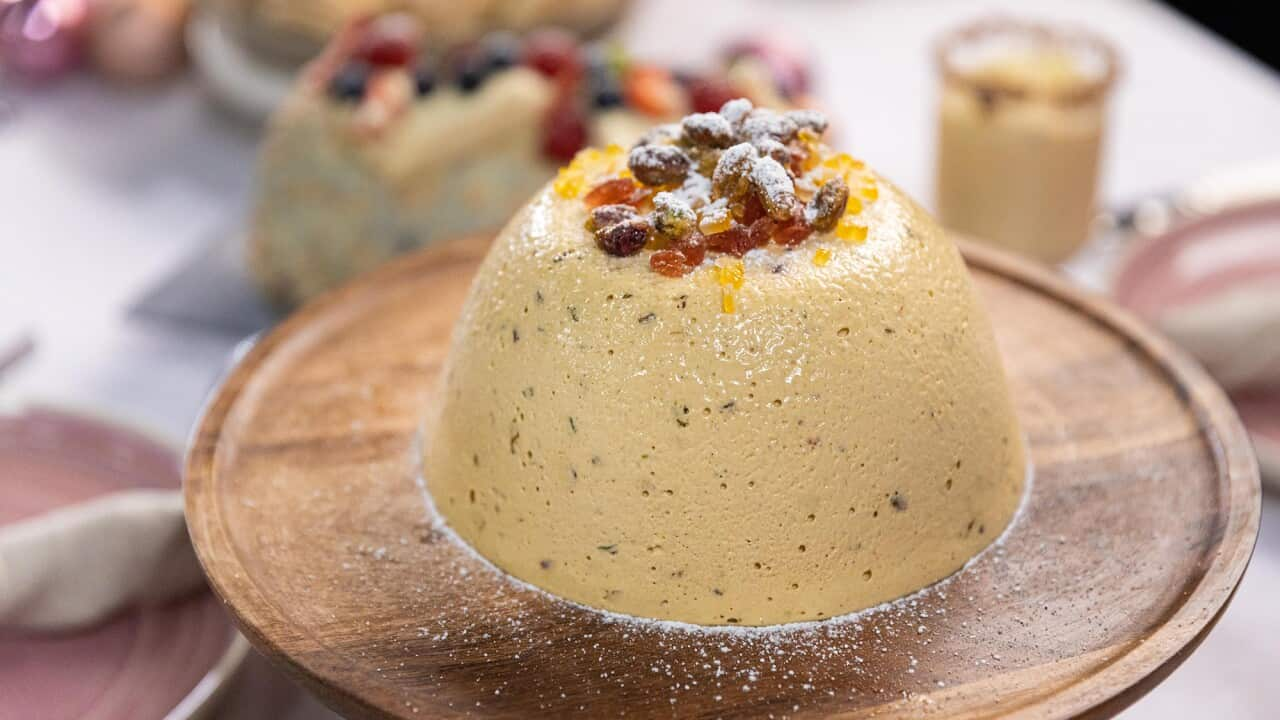makes
20
prep
2 hours
cook
1:30 hour
difficulty
Ace
makes
20
serves
preparation
2
hours
cooking
1:30
hour
difficulty
Ace
level
Ingredients
Kibbeh dough
- 1 cup fine burghul
- 250 g lean beef or lamb mince
- 1 onion, chopped
- 1 tsp salt
- ¼ tsp freshly ground black pepper
- ¼ tsp ground cumin
- pinch freshly grated nutmeg
- 2-3 tbsp plain flour
Filling
- 1 onion, finely diced
- 3 tsp olive oil
- 300 g lean beef or lamb mince
- ½ tsp salt
- pinch freshly ground black pepper
- ¼ tsp mixed spice
- ½ cup chopped parsley (optional)
- handful pomegranate seeds (optional)
The following recipe has been tested and edited by SBS Food and may differ slightly from the podcast.
Soaking time 30 minutes
Chilling time 30 minutes
Instructions
Soak the burghul in 1 cup (250 ml) cold water for 30 minutes. Drain and squeeze out excess water by hand. Place in a food processor with mince, onion, salt, spices and flour in a food processor. Blend, adding 2–3 tbsp cold water until a smooth paste forms, cover and refrigerate.
For the filling, place a large frying pan over medium heat, fry the onion in olive oil until golden. Add the mince, use a wooden spoon to break up and cook until separated. Add the salt and spices, stir for 1 minute, then add ¼ cup water, reduce heat to very low and cook gently for 15-20 minutes, or until the water has been absorbed. Add the parsley and set aside to cool. Add pomegranate seeds if using.
Using slightly moistened hands, place a small amount of dough (about 2 tbsp) in the palm of one hand, flatten the dough into a disc, then spoon on about 1 tbsp filling. Close over the dough, sealing well, and roll gently to form a kibbeh shape. Heat the oil to 180°C and deep-fry the kibbeh in batches for 3-4 minutes, or until golden, being careful of the hot oil. Remove with a slotted spoon and drain on paper towel. Alternatively, poach the kibbeh in gently simmering salted water to avoid frying, or even bake in medium-hot oven for 20 minutes.
Note
• Fine burghul is available from Middle Eastern food shops and some supermarkets.
Photography by Alan Benson. Styling by Michelle Noerianto. Food preparation by Nick Banbury.
Cook's Notes
Oven temperatures are for conventional; if using fan-forced (convection), reduce the temperature by 20˚C. | We use Australian tablespoons and cups: 1 teaspoon equals 5 ml; 1 tablespoon equals 20 ml; 1 cup equals 250 ml. | All herbs are fresh (unless specified) and cups are lightly packed. | All vegetables are medium size and peeled, unless specified. | All eggs are 55-60 g, unless specified.


